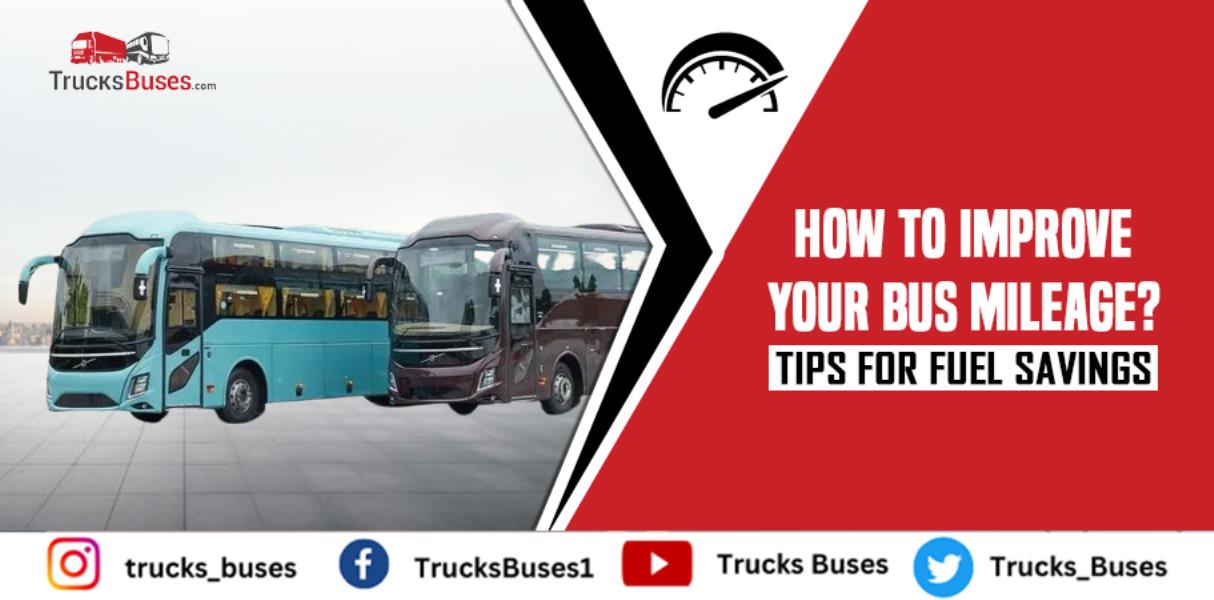How to Improve Your Bus Mileage - Tips for Fuel Savings
Get some key tips to enhance and maintain fuel efficiency for the long term. Buses provide good fuel efficiency both in intercity and intracity transportation. Optimizing vehicle load and improving aerodynamics also contribute to better mileage.

Maximizing Bus Mileage: A Key to Fuel Savings and Fleet Longevity
Enhancing bus mileage allows operators to achieve significant savings on fuel costs and strengthen their financial performance. Adopting strategies to boost mileage also benefits the core of your operations, the bus engine. By implementing these effective techniques, you not only reduce expenses but also promote the longevity and overall health of your bus fleet. Improving fuel efficiency helps to extend the life of your engines and ensures that your buses remain reliable and cost-effective in the long run. These practices contribute to both immediate savings and sustained operational success.
How to Improve Your Bus Mileage
Increasing bus mileage is essential for reducing fuel costs and enhancing overall efficiency. Here are some practical tips to help you get a better fuel economy from your buses:
- Smooth Acceleration and Braking: Avoid sudden starts and stops. Gradual acceleration and braking help improve fuel efficiency.
- Maintain Optimal Speed: Drive at a steady speed and avoid high speeds. Using cruise control on highways can help maintain a consistent speed and improve mileage.
- Reduce Useless Time: Minimize idling time. Turn off the engine when the bus is stopped for extended periods.
- Engine Service: Ensure the engine is regularly maintained for optimal performance. A well-maintained engine runs more efficiently and consumes less fuel.
- Check and Replace Air Filters: Clean or replace air filters regularly. A clean air filter improves engine performance and fuel efficiency.
- Monitor Tyre Pressure: Keep tyres properly inflated. Under-inflated tyres increase rolling resistance and reduce fuel mileage.
- Proper Loading: Ensure that the bus is loaded evenly to avoid additional strain on the engine and drivetrain.
- Remove Roof Accessories: Remove any unnecessary roof racks or accessories that can increase drag and reduce mileage.
- By adopting these strategies, you can significantly increase bus mileage, lower fuel costs, and improve the overall efficiency of your fleet.
- Utilize Cruise Control to Enhance Bus Efficiency: Most modern buses have a cruise control feature that you should encourage your drivers to use. Especially when it comes to highways, cruise control is an important feature that can help boost fuel efficiency.
Conclusion
Improving bus mileage is a combination of adopting efficient driving practices, maintaining the vehicle properly, optimizing load and ensuring regular tire maintenance. By implementing these strategies, you can reduce fuel costs, enhance the efficiency of your fleet, and contribute to a more sustainable operation.
Regular attention to these areas not only helps in cutting down on fuel expenses but also extends the life of your buses, leading to long-term savings and a more reliable fleet. Embrace these practices to get the most out of every litre of fuel and keep your buses running smoothly and efficiently.
Read Also:
Top 10 Mahindra Buses: Specifications & Mileage - Complete Overview
Top 5 Sleeper Buses in India